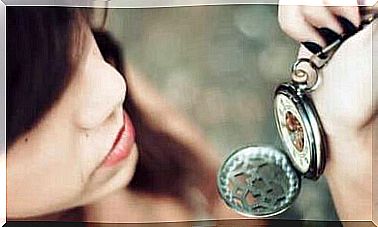Destructive Leaders: How To Identify Them

Destructive leaders have two distinctive features. First, they are influential. Secondly, they act against the interests of those in their power. They do not necessarily show strange behavior or have particularly cruel traits. Still, they do a lot of damage.
The word destructive is not always understood. It refers to those who deviate from “normal” behavior in a destructive way. In this particular case, it characterizes a person who does not want to build good cooperation and empathic ties with others.
Destructive leaders often do things to undermine groups, as well as the individuals who challenge them. In addition, they exercise thorough control, mostly to get praise. They also often break the rules.
Here are some of the characteristics they tend to show.

Destructive leaders are compelling
They often possess abundance and obedience. Abundance refers to skills, resources, knowledge or other aspects they stand out in. This factor often attracts others. It also strengthens the authority of the destructive leader over them.
Adherence refers to the destructive leader’s ability to convey enthusiasm and passion. It is as if their emotions are contagious. In fact, they tend to attract others like magnets.
They can be harmful
This means that these leaders set harmful goals, even if they initially seem nice. A good example of this is a gang leader.
A destructive leader has the ability to detect or amplify destructive qualities in others. Of course, we can all behave badly under certain circumstances. However, this type of leader does not counter or stop this type of behavior. In fact, they like to hurt and destroy others. Furthermore, they encourage others to behave incorrectly.
They are toxic
This trait is more visible in destructive leaders with a formal power. Somehow they establish a kind of logic that sets people up against each other. In addition, they encourage unhealthy competition and promote conflict. However, this can be done in a very subtle way.
This type of leader considers people who unite to be dangerous to them. For that reason, they seek to destroy the trust of each individual. This guarantees greater control over one group and also increases power over others.
They are narcissistic
Most destructive leaders are very intelligent or at least extremely cunning. They also tend to be charismatic and do not particularly care what others think of them. This gives them an aura of security and strength.
Their abilities, but above all their character, make them feel superior. Furthermore, their “audience” tends to reinforce this idea. Consequently, they are extremely narcissistic. This means that they have no empathy for others. In fact, they find it difficult to relate to something outside of themselves. However, this type of personality can be easily controlled if their power is threatened.
They are intelligent
As we mentioned above, these people are usually remarkably intelligent. Furthermore, they tend to have some form of practical intelligence. They use this, often paradoxically, to “understand” people. In fact, they mentally capture the behavior of others, but do not become sensitive to them in any way. They just want to manipulate them.
The intelligence of this type of leader is also characterized by a lack of ethics. While such people rarely become violent criminals, they often break both the rules and the law. In fact, they both destroy and damage. However, they do not do this to get rid of others, but for the satisfaction they achieve by confusing and degrading them.

Destructive leaders are underestimated
Destructive leaders tend to be underestimated in two ways. First, they do not show very shocking behavior. For this reason, others do not tend to see them as “destructive”. In fact, they are more likely to be considered daring, daring or troublesome.
Second, destructive leaders underestimate their own ability to harm others. For them, a minor crime is not a crime at all, but more a game or a challenge. Consequently, they feel no remorse for it. In fact, they do not see anything negative or reprehensible about their behavior at all. If something bad happens, they certainly do not consider it important enough to change behavior.
This type of leader usually attracts the type of people they can benefit from. For example, if they lead a working group, they will often humiliate, deceive people, and make those who criticize them feel bad.
In short, although these leaders are not dangerous, they are absolutely harmful.









